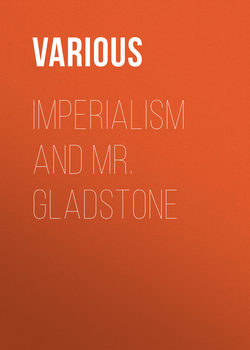Читать книгу Imperialism and Mr. Gladstone - Various - Страница 1
INTRODUCTION
ОглавлениеThis series of English History Source Books is intended for use with any ordinary textbook of English History. Experience has conclusively shown that such apparatus is a valuable – nay, an indispensable – adjunct to the history lesson. It is capable of two main uses: either by way of lively illustration at the close of a lesson, or by way of inference-drawing, before the textbook is read, at the beginning of the lesson. The kind of problems and exercises that may be based on the documents are legion, and are admirably illustrated in a History of England for Schools, Part I., by Keatinge and Frazer, pp. 377-381. However, we have no wish to prescribe for the teacher the manner in which he shall exercise his craft, but simply to provide him and his pupils with materials hitherto not readily accessible for school purposes. The very moderate price of the books in this series should bring them within reach of every secondary school. Source books enable the pupil to take a more active part than hitherto in the history lesson. Here is the apparatus, the raw material: its use we leave to teacher and taught.
Our belief is that the books may profitably be used by all grades of historical students between the standards of fourth-form boys in secondary schools and undergraduates at Universities. What differentiates students at one extreme from those at the other is not so much the kind of subject-matter dealt with, as the amount they can read into or extract from it.
In regard to choice of subject-matter, while trying to satisfy the natural demand for certain "stock" documents of vital importance, we hope to introduce much fresh and novel matter. It is our intention that the majority of the extracts should be lively in style – that is, personal, or descriptive, or rhetorical, or even strongly partisan – and should not so much profess to give the truth as supply data for inference. We aim at the greatest possible variety, and lay under contribution letters, biographies, ballads and poems, diaries, debates, and newspaper accounts. Economics, London, municipal, and social life generally, and local history, are represented in these pages.
The order of the extracts is strictly chronological, each being numbered, titled, and dated, and its authority given. The text is modernized, where necessary, to the extent of leaving no difficulties in reading.
We shall be most grateful to teachers and students who may send us suggestions for improvement.
S. E. WINBOLT.
KENNETH BELL.
NOTE TO THIS VOLUME
I acknowledge, with thanks to the authors concerned, and to Messrs. Macmillan and Co., their kind permission to reprint in this volume the following passages: that on p. 102, from the Life of Lord Randolph Churchill, by the Right Hon. Winston Churchill; three extracts, on pp. 59, 62, 83, from Mahdiism and the Egyptian Soudan, by Sir Francis Wingate; the passages from Lord Morley's Life of Gladstone, on pp. 97, 98, 101, 110; and the passages from Lord Cromer's Modern Egypt, on pp. 68, 69, 70, 87. I acknowledge also with thanks the permission of the proprietors of The Times to reprint the various extracts from that journal; and the permission of the proprietors of The Saturday Review to reprint the extract on p. 35. In dealing with a period so recent, I have inevitably been very dependent upon the courtesy of the owners of copyright, and I wish to express my gratitude for the readiness with which that courtesy has been extended in these important cases.
I am also indebted to Messrs. Longmans, Green and Co. for permission to print extracts from Professor Mackail's Life of William Morris, and from Mr. Bernard Holland's Life of the late Duke of Devonshire, and to Messrs. Kegan Paul and Co. for similar permission to quote from General Gordon's Journal.
R. H. G.
